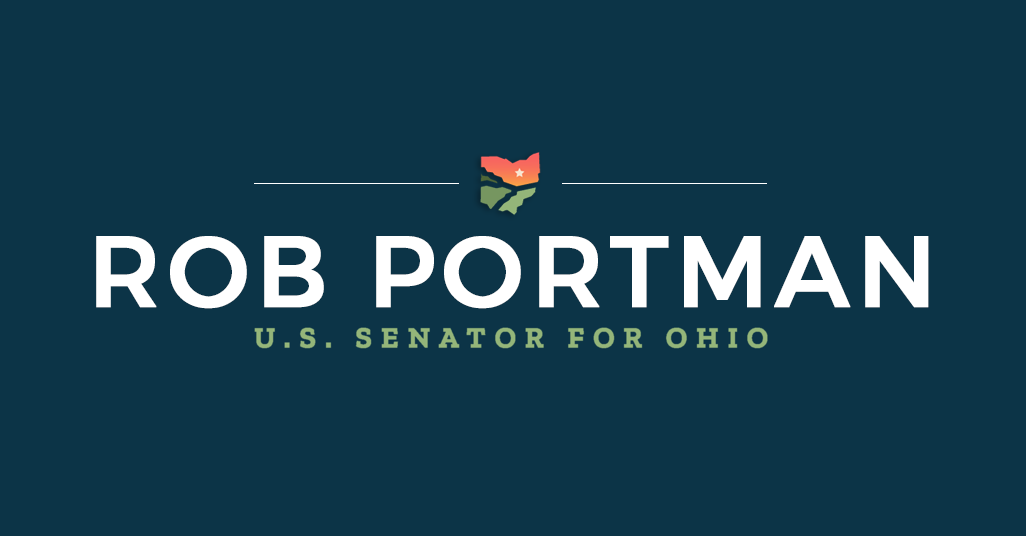Source: United States Senator for Ohio Rob Portman
September 17, 2021 | Portman Difference
In a new op-ed for the Washington Examiner, Senator Portman discusses how his bipartisan Infrastructure Investment and Jobs Act, makes needed, common sense investments in infrastructure resiliency to protect vulnerable communities against extreme weather disasters like the hurricanes, wildfires, droughts, and floods that have hit the United States this summer.
As Portman details, the unprecedented resources in this $542 billion infrastructure agreement will provide $46 billion in new spending for key initiatives like hazard mitigation through the Federal Emergency Management Agency, drought resiliency efforts, and forest restoration, which makes it less likely for landslides, flooding, and other catastrophic events to occur.
Excerpts of the op-ed can be found below and the full op-ed can be found here.
Implement Commonsense Protections from Weather Disasters
By U.S. Senator Rob Portman
Washington Examiner
From wildfires in the west to hurricanes and heavy flooding in the east, the United States has recently suffered several significant natural disasters. Experts say these extreme weather events are becoming more frequent.
This summer’s heat, fires, and flooding took the lives of at least 338 people ; destroyed thousands of homes, businesses, and crops; and cost the U.S. billions in damages. Regardless of how you feel about the causes of climate change, it makes sense to take smart steps to strengthen our infrastructure and bolster our resiliency against these destructive events to reduce deaths, injuries, and significant economic costs.
Some on the Left argue the only solution is radical Green New Deal policies such as those expected to be in the partisan $3.5 trillion reconciliation package with job-killing mandates and taxes that Democrats are trying to jam through Congress. However, there are more commonsense ways to ensure communities in the path of the next big hurricane, tornado, wildfire, flood, or drought are better able to prepare and protect their citizens from harm: the Senate-passed bipartisan Infrastructure Investment & Jobs Act, which invests $542 billion in our nation’s crumbling infrastructure — all without mandates or other punitive measures.
…
It includes investing $5.5 billion to support drought resiliency and nearly $9 billion to protect communities against wildfires and support recovery and restoration efforts such as reforestation. One provision, the bipartisan REPLANT Act, will help the U.S. Forest Service plant 1.2 billion trees in areas hit by wildfires, tree disease, and other damage. Reforestation will help make our communities more resilient by making it less likely for landslides, flooding, and other catastrophic events to occur.
For communities across the southeast that have seen unprecedented levels of rainfall and destructive hurricane-force winds and the coastal communities along the shores of the Great Lakes that continue to experience coastal erosion and flooding, there is $12 billion in federal programs to counter the effects of flooding, strengthen our coastlines, and protect vulnerable communities.
…
These investments don’t just keep us safer from the next big weather disaster and help us make more effective and sustainable use of our natural resources — they’re good for the economy, too. The REPLANT Act alone will create nearly 49,000 jobs over the next decade. One recent study from the Association of Equipment Manufacturers found that the entire infrastructure legislation could create about half a million good-paying jobs by 2024 in fields such as construction, plumbing, electrical engineering, and software development. And unlike the Democrats’ partisan wish list, these investments are not designed to fuel consumer demand or disenfranchise energy industries or lead to further inflation in our economy.
The Infrastructure Investment & Jobs Act represents an important investment to address the threat of natural disasters facing communities across the country and mitigate their impacts while creating thousands of jobs for hard-working Americans. Through our balanced, bipartisan approach to building up our resiliency and mitigating the effects of hurricanes, tornadoes, wildfires, and other major threats, we will be better prepared to handle whatever Mother Nature sends our way.
…
###
